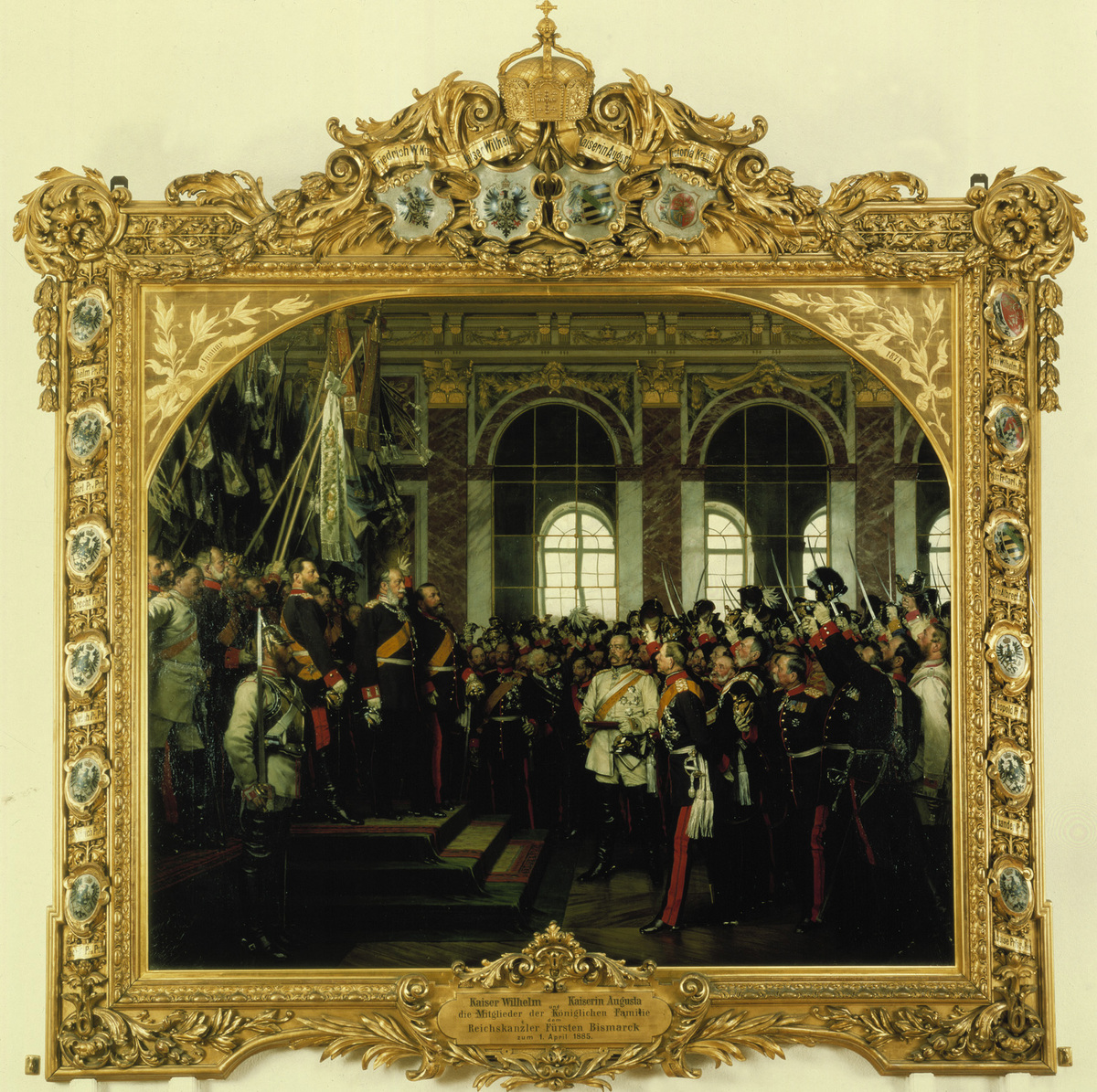Abstract
In the Friedrichsruh version of The
Proclamation of the German Empire on January 18, 1871, Anton von
Werner took even greater liberties with regard to historical fact than
he did in the palace version and the 1880 wood engraving. The
Friedrichsruh painting was commissioned by the Prussian royal family in
February 1885 as a present for Bismarck’s 70th birthday on April 1,
1885. As in the 1880 woodcut, Bismarck is shown in his white Cuirassier
uniform (which, as was explained in the previous caption, he did not
actually wear on January 18, 1871). Likewise, he is shown in the same
thigh-high Cuirassier boots, and his authoritative stance remains
largely unchanged. But this 1885 painting differs from the 1880 woodcut
in at least one important sartorial detail—the
Pour le mérite medal, which had only
been awarded to Bismarck in 1884, now appears on his uniform. This
addition was not the only noteworthy change. For example, Chief of the
Prussian General Staff Helmuth von Moltke assumes greater prominence
than in previous versions of the scene, and Prussian War Minister
Albrecht von Roon, who was not present that day on account of a bout of
catarrh, has been inserted into the assembled crowd. As Matthew
Jefferies pointed out, it is remarkable that all of the major figures in
the Friedrichsruh version look as they did in the 1880s, not as they had
in 1871. Thus, its value as a snapshot of an event fourteen years
earlier was necessarily diminished. It is important to remember,
however, that the various versions of Werner’s
Proclamation responded as much to the
desires of individual patrons than to the notion of historical truth.
Insofar as this version was intended as a birthday gift for Bismarck, it
is entirely natural that he would take center stage and be surrounded by
his closest friends and colleagues. It is just as logical that, by 1885,
the unostentatious and rather hurried proclamation depicted in the
palace version should have been transformed into a much more vibrant and
symbolically rich portrayal of the empire’s founding—and its “founder.”
This painting still resides in Bismarck’s former estate in
Friedrichsruh.
